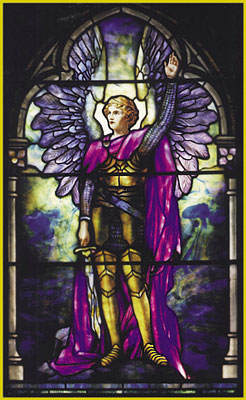The idea that God has appointed an angel or god over each of the pagan nations finds its most notable development in Daniel 10. According to the book of Daniel, in the third year of Cyrus, king of Persia, an angel appears to Daniel, delayed for twenty-one days because "the prince of the kingdom of Persia withstood me." But Michael, "one of the chief princes (archonton)," came to the angel's aid. "So I left him there with the prince (archon) of the kingdom of Persia and came. ..." Hastily he finishes the message, then: "But now I will return to fight (polemesai) against the prince (archontos) of Persia; and when I am through with him, lo, the prince (archon) of Greece will come. ... There is none who contends by my side against these except Michael, your prince (archon)" (Dan 10:13, 20, 21). (Naming the Powers: The language of power in the New Testament , page 27)
In this, the first of his three volumes about the Powers , Wink explains what he means by the angels of the nations. His aim is to map the first century Palestinian understanding of cosmology. The conflicts between nations on earth are played out in heaven by the angels of the nations. What are the angels of the nations? They represent the interests of the people of their own nation. Wink attempts to demonstrate the powers are the contemporary equivalent of our own sociological analysis. This gripped me when I first read it during the nineties and it seems to make sense of much that is in the New Testament. The main difficulty I have had is to find a short passage which conveys something of Wink's analysis to the reader.
Our lives are still controlled by the powers, even though we don't think of them as angels. The spirit of our nations, our churches or our political organisations still dominate us. Too often we think of ourselves as free agents, when in fact we are enslaved by forces deep seated in our own imagination. We need to pray to be delivered from these illusions which can destroy our lives and the lives of others.











Recent Comments